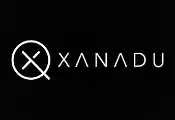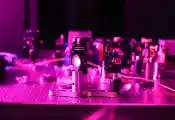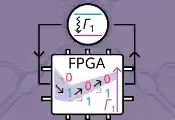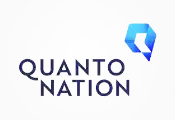Germany Instead of America: Paderborn University Physicist Receives 1.2 Million Grant for Quantum Research
September 25, 2025 -- Jun. Prof. Dr Nicholas A. Güsken, physicist and nanotechnologist at Paderborn University, is being sponsored by the Wübben Science Foundation for a period of five years with a total of around 1.2 million euros. With the "Tenure Track Professorship" programme, the foundation supports German universities in appointing top international talent and finances the first years of a tenure-track professorship. The funding programmes are aimed at outstanding scientists from abroad who want to return to Germany. Junior Professor Güsken is also sponsored by the NRW Returnee Programme. With this programme, the state of North Rhine-Westphalia supports young scientists who have ventured abroad from Germany and are now returning to NRW.
Jun. Prof. Güsken is dedicated to the fundamentals of future quantum technologies: The researcher is researching optical interfaces for quantum networks. He turned down an American offer to come to Germany. His appointment was made possible by the cooperation of the university, the foundation and the return programme of the state of North Rhine-Westphalia. Prior to this, Professor Güsken worked as a postdoc at Stanford University in the Geballe Laboratory for Advanced Materials. He studied at RWTH Aachen University and Sorbonne University in Paris. He received his doctorate from Imperial College London in 2020. He was also recently elected a member of the Young Academy of the German National Academy of Sciences Leopoldina and the Berlin-Brandenburg Academy of Sciences and Humanities.
At Paderborn University, Prof. Güsken heads a group in experimental physics that focuses on quantum photonics and optoelectronics. The focus is on the manipulation of quantum emitters, active light-matter interaction and research into active component interfaces in photonic integrated circuits and networks. The group is part of both the Paderborn Institute for Photonic Quantum Systems (PhoQS) and the "Center for Optoelectronics and Photonics Paderborn" (CeOPP).




































